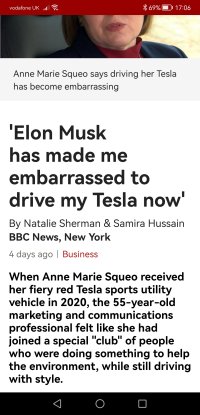Amarillo
Tom
Super Poster
VIP Member
That is how I envisage it working. Some sort of guided lane for pantograph trucks, with trains of them connected by Bluetooth or similar, trundling along at a steady 90 kph, only breaking up and reforming when one or more want to leave the train.it would be great to keep the trucks on the inside lane only though
If the overhead power cables are not to run under bridges or through tunnels, trucks temporarily relying on battery power, it does away with any issues of vandals wanting to lob stuff onto the cables.
I really can’t see that automatic lowering or raising of the pantograph to be an issue.
I was riding the Docklands Light Railway today. It must be 30 years old. Everything is fully automated, and while there are occasional issues, it is generally very reliable. I still love sitting at the front and pretending I’m the driver.
If self driving trains were possible when the London Docklands were being developed 30 or 40 years ago, I cannot understand why autonomous pantograph can’t be possible today.



















